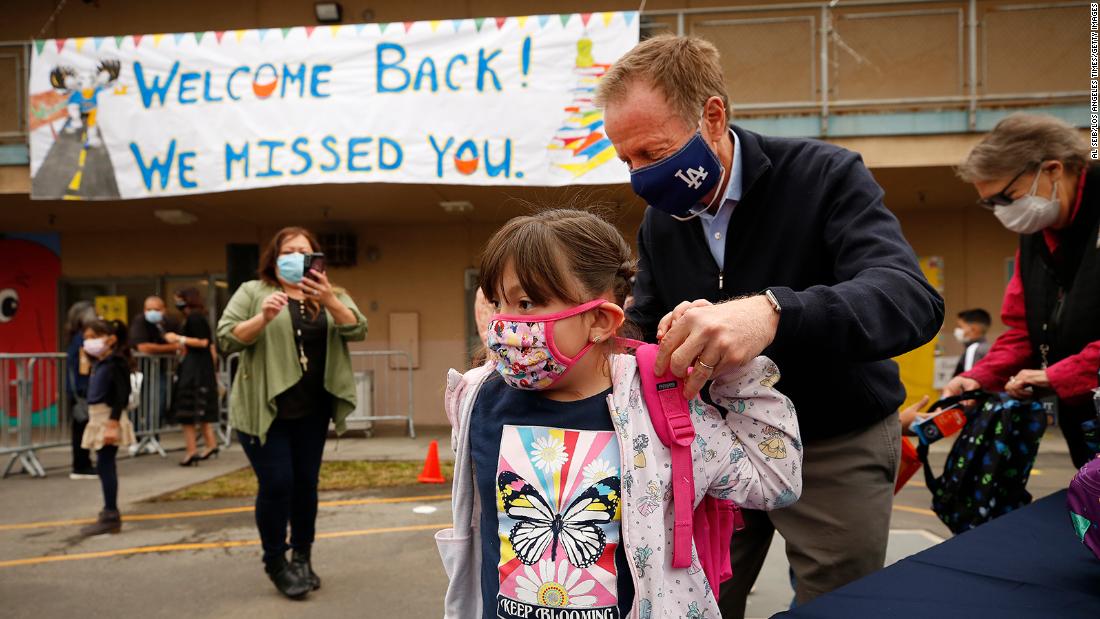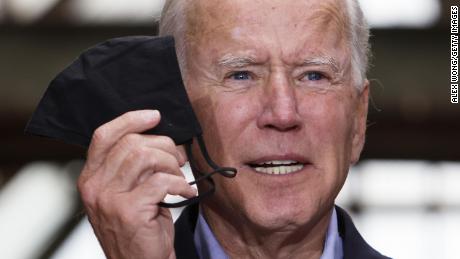A return to normalcy seems tantalizingly close, but many in the US are living in a frustrating gray area when only about 30% of the population is fully vacinated
Despite declining case and death rates, many Americans are still living their lives in a frustrating gray area at a time when only about 30% of the population is fully vaccinated. The potential return to normalcy seems so tantalizingly close. Yet many parents are still struggling with the distractions of working from home with children underfoot — desperate for students to get fully back in school.
White House Covid-19 response coordinator Jeff Zients noted Friday that the US shipped out its 300 millionth dose this week, but once again stressed that the pace of vaccinations would “moderate and fluctuate” amid reports of a dropoff in vaccinations in some areas. Facing persistent questions from reporters about the dwindling demand for vaccines, he and his colleagues emphasized their intensifying focus on making it easier for busy and home-bound Americans to get shots while combating vaccine misinformation to get more people vaccinated.
“It’s not unexpected, as we entered this next phase, that there will be more of a balance between supply and demand,” Zients said during Friday’s Covid-19 task force briefing. “That makes it even more important that we make it easier for people to get vaccinated, that we continue, as (Surgeon General) Dr. (Vivek) Murthy talked about, to build vaccine confidence and ensure equity.”
“What is unexpected is how fast we’ve gotten here,” Zients added. “We know this next phase won’t be easy, but neither was getting to 220 million shots in arms in the first 100 days.”
‘Flood the zone with accurate information’
Overall, about 63% of Americans said they would feel comfortable returning to their regular routines in the CNN poll; 32% said they would not and 4% said they already have.
Americans’ ability to return to their daily rituals safely will depend on the government keeping up the pace of vaccinations. Most scientists say that to get to the point where the spread of virus can be halted, which is known as herd immunity, between 70% and 85% of the population must be protected either by antibodies from natural infection or vaccination.
White House press secretary Jen Psaki said Friday that the White House approach to combating that kind of vaccine misinformation will be to “flood the zone with accurate information.”
Psaki told reporters that the White House is in the process of investing $3 billion in public campaigns across the country, a combination of funding for paid media and social media, as well as money for local programs that can harness the influence of trusted community leaders to persuade Americans to get vaccinated.
Pressure to reopen
Even as the pace of vaccinations slows, governors and mayors in both red and blue states are under pressure to get their economies reopened. Biden has said he hopes that Americans can get together in small groups to celebrate by July 4.
“The people are getting vaccinated and fighting back Covid, and it’s working,” de Blasio said when asked to respond to Cuomo’s comments. “They’re ready for a comeback.
Asked about whether a July 1 reopening was too soon for New York, Dr. Rochelle Walensky, the CDC director, said in the White House Covid-19 press briefing Friday that officials remain focused on “getting people vaccinated, decreasing the case rates.”
“If we can continue at this pace, case rates are coming down, vaccinations going up, then I think July 1 would be a reasonable target,” she said.
But when pressed on that question — whether Americans would still be wearing masks at restaurants and arenas indoors, for example — she said she didn’t want to make predictions about what the nation’s life would look like by then.
“This virus has tricked us before,” she said.
![]()




